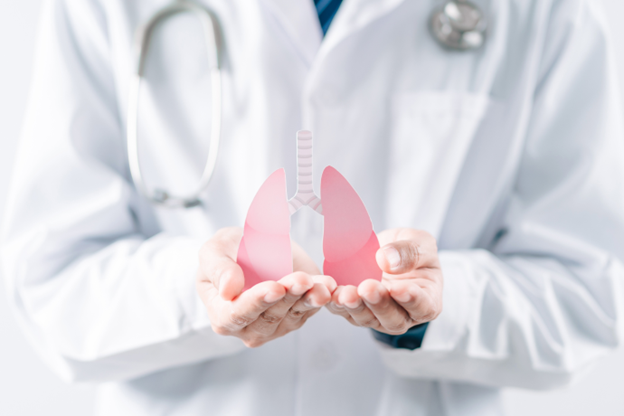
- Awareness
-
by
Every year, World Lung Day is celebrated globally on September 25th to raise awareness about lung health and respiratory diseases. With millions of people affected by lung conditions such as asthma, chronic obstructive pulmonary disease (COPD), lung cancer, and respiratory infections, this day serves as a vital platform to educate the public on prevention, treatment, and the importance of healthy lungs.
In this article, we’ll dive deep into the significance of World Lung Day, how lung health impacts overall well-being, and what steps we can take to support healthy lungs globally.
The Significance of World Lung Day
World Lung Day was initiated by the Forum of International Respiratory Societies (FIRS) to highlight the importance of lung health and the global burden of lung diseases. It’s an opportunity for governments, healthcare organizations, and individuals to come together and take action in promoting respiratory health awareness.
Why Lung Health Matters
- Lungs are vital for life: Our lungs deliver oxygen to the bloodstream, which is essential for every cell in the body to function. Without proper lung function, other organs in the body start to fail.
- The rise of lung diseases: Lung diseases are among the leading causes of death worldwide. In fact, COPD is the third leading cause of death globally, and lung cancer remains one of the deadliest cancers.
- Preventable conditions: Many lung diseases, such as those caused by smoking, air pollution, or occupational hazards, can be prevented with proper education and early intervention.
How to Promote Healthy Lungs
In honor of World Lung Day, individuals and communities can take action by prioritizing lung health. Here are a few effective ways to protect and maintain healthy lungs:
1. Quit Smoking
Smoking is the number one cause of lung cancer and other respiratory diseases like COPD. Quitting smoking is the most important step anyone can take to improve lung health. The chemicals in cigarettes not only damage the lungs but also weaken the immune system, making it harder to fight off infections.
- Support local campaigns and programs that help people quit smoking.
- Educate about the dangers of secondhand smoke, which also harms lung health.
2. Reduce Exposure to Air Pollution
Air pollution is a growing problem worldwide and has severe impacts on lung health. Harmful pollutants, such as fine particulate matter (PM2.5), ozone, and toxic gases, can cause or exacerbate respiratory conditions.
- Support policies aimed at reducing air pollution.
- Limit exposure to pollutants by wearing masks and staying indoors on days with poor air quality.
- Use air purifiers in homes and workplaces to reduce indoor pollution.
3. Practice Good Hygiene
Respiratory infections such as COVID-19, the flu, and pneumonia can severely damage the lungs. Good hygiene can help prevent these infections:
- Wash your hands regularly to prevent the spread of germs.
- Stay up-to-date on vaccinations, including the flu and pneumonia vaccines.
- Wear masks in crowded places to reduce the risk of airborne infections.
4. Stay Active
Physical activity plays an important role in maintaining lung health. Regular exercise improves lung function and increases the capacity of the lungs to exchange oxygen more efficiently.
- Engage in activities like walking, cycling, or swimming to keep your lungs strong.
- Breathing exercises and meditation can also help improve lung capacity and reduce stress, which can negatively impact breathing.
5. Advocate for Better Lung Health Policies
Individuals and organizations can contribute to lung health advocacy by:
- Supporting global efforts to increase access to clean air and respiratory healthcare.
- Advocating for policies that limit smoking and air pollution in public spaces.
- Raising awareness about the harmful effects of lung diseases and the importance of early detection.
The Global Burden of Lung Diseases
According to the World Health Organization (WHO), lung diseases account for over 4 million deaths annually. Here are some key statistics to highlight the urgent need for action:
- COPD: Affects around 251 million people worldwide and is the third leading cause of death.
- Asthma: Affects approximately 262 million people globally and causes around 461,000 deaths each year.
- Lung Cancer: The deadliest cancer, responsible for 1.76 million deaths in 2020 alone.
- Pneumonia: A significant cause of death among young children, especially in developing countries.
These alarming numbers emphasize the critical need for global collaboration in addressing lung diseases and improving access to treatment and prevention measures.
How You Can Participate in World Lung Day
There are several ways to participate in World Lung Day:
1. Raise Awareness: Use social media platforms to share information about lung health, using hashtags like #WorldLungDay and #HealthyLungsForAll.
2. Attend Events: Join local or virtual conferences on lung health. Many organizations host educational webinars, workshops, and free health screenings on this day.
3. Support Charities: Donate to organizations that are working to improve lung health globally, such as the American Lung Association, FIRS, or local lung health organizations.
4. Get a Lung Health Check: Take this opportunity to get a checkup and discuss any potential lung health concerns with your healthcare provider.
Conclusion
World Lung Day is an important reminder of how critical lung health is to overall well-being. We can all play a role in creating a healthier future by taking steps to quit smoking, reducing air pollution, staying active, and advocating for better policies.
On this World Lung Day, let’s commit to protecting our lungs and the lungs of those around us. Spread awareness, take preventive measures, and support global efforts to fight against respiratory diseases.